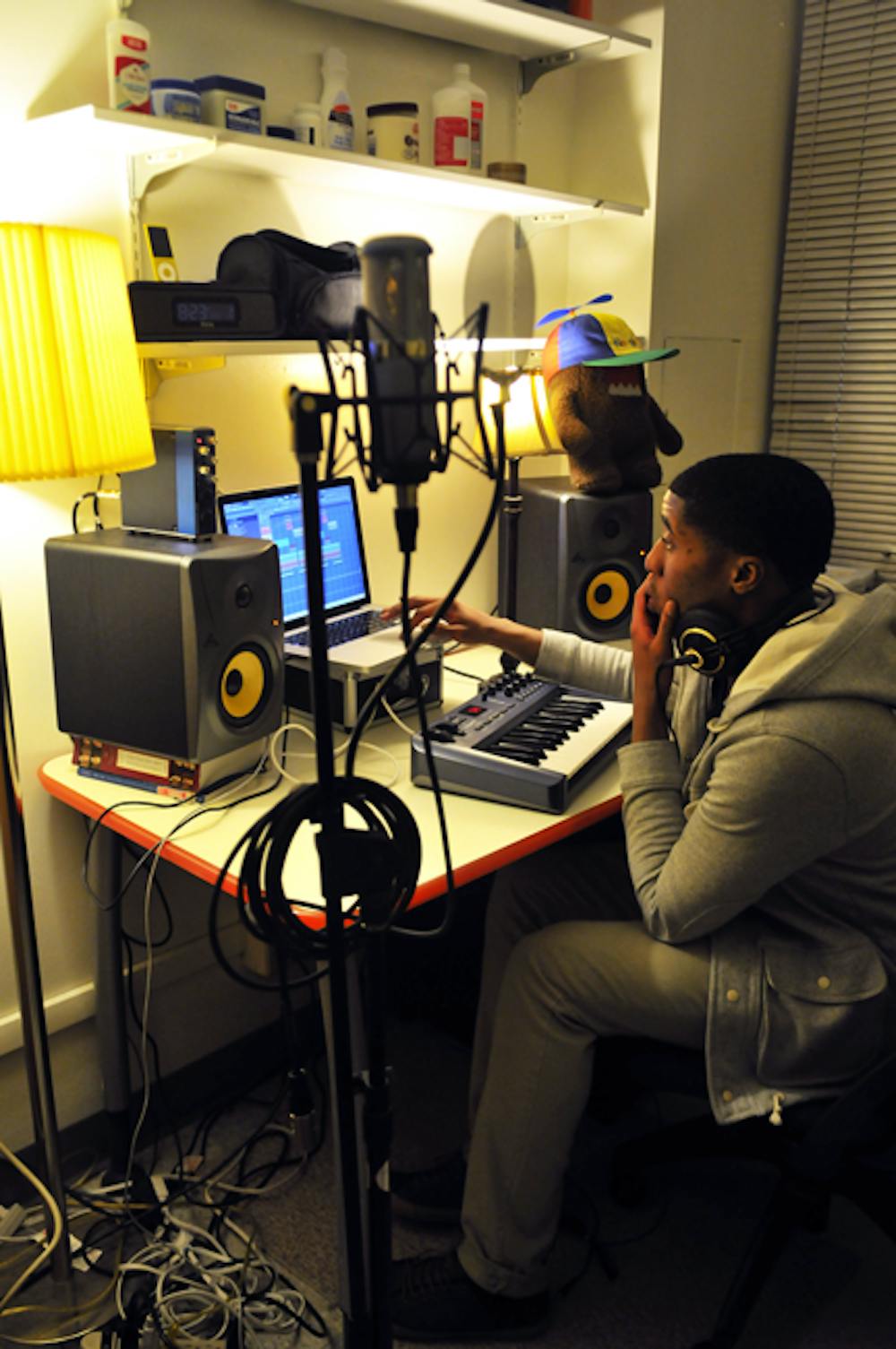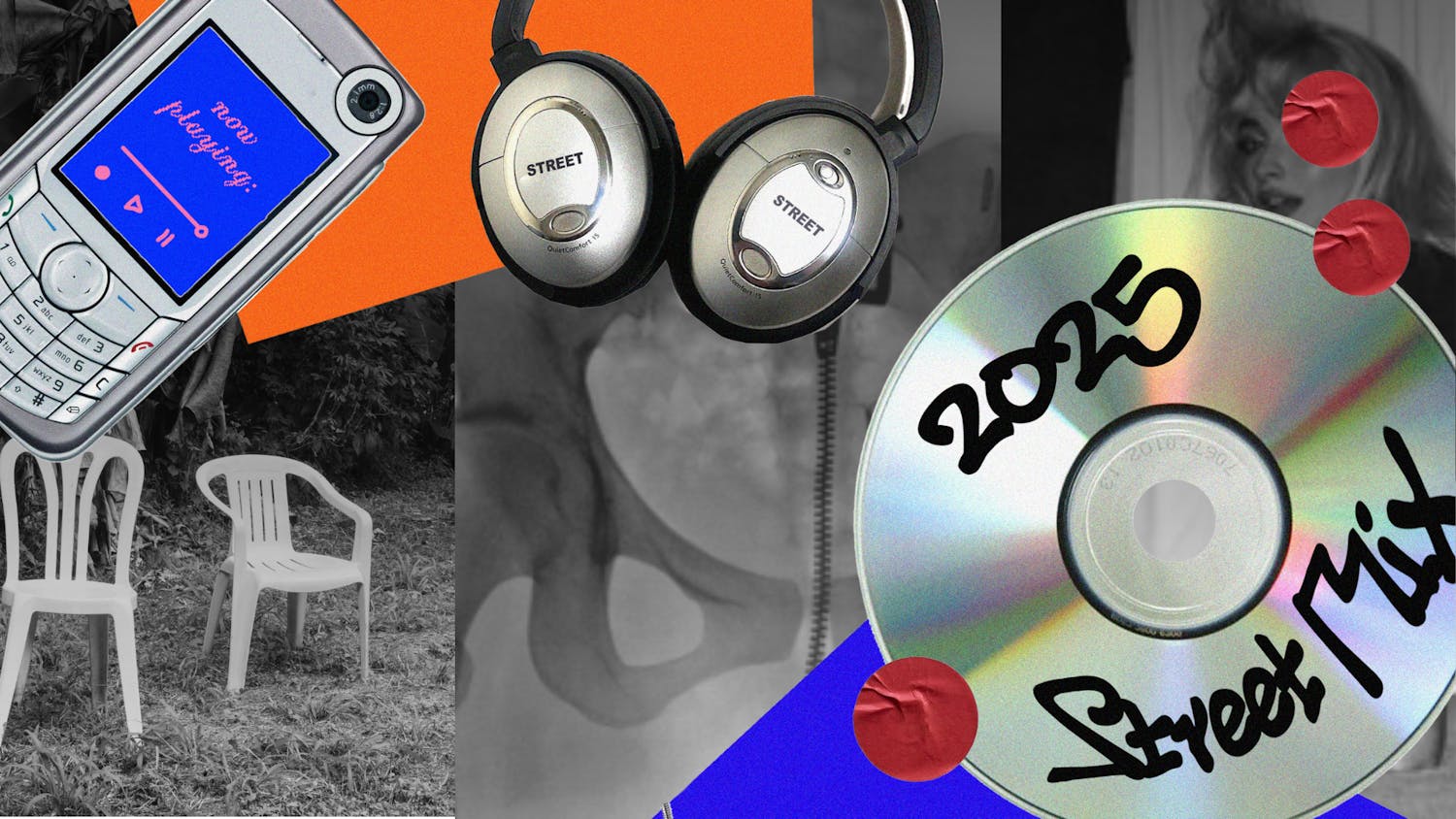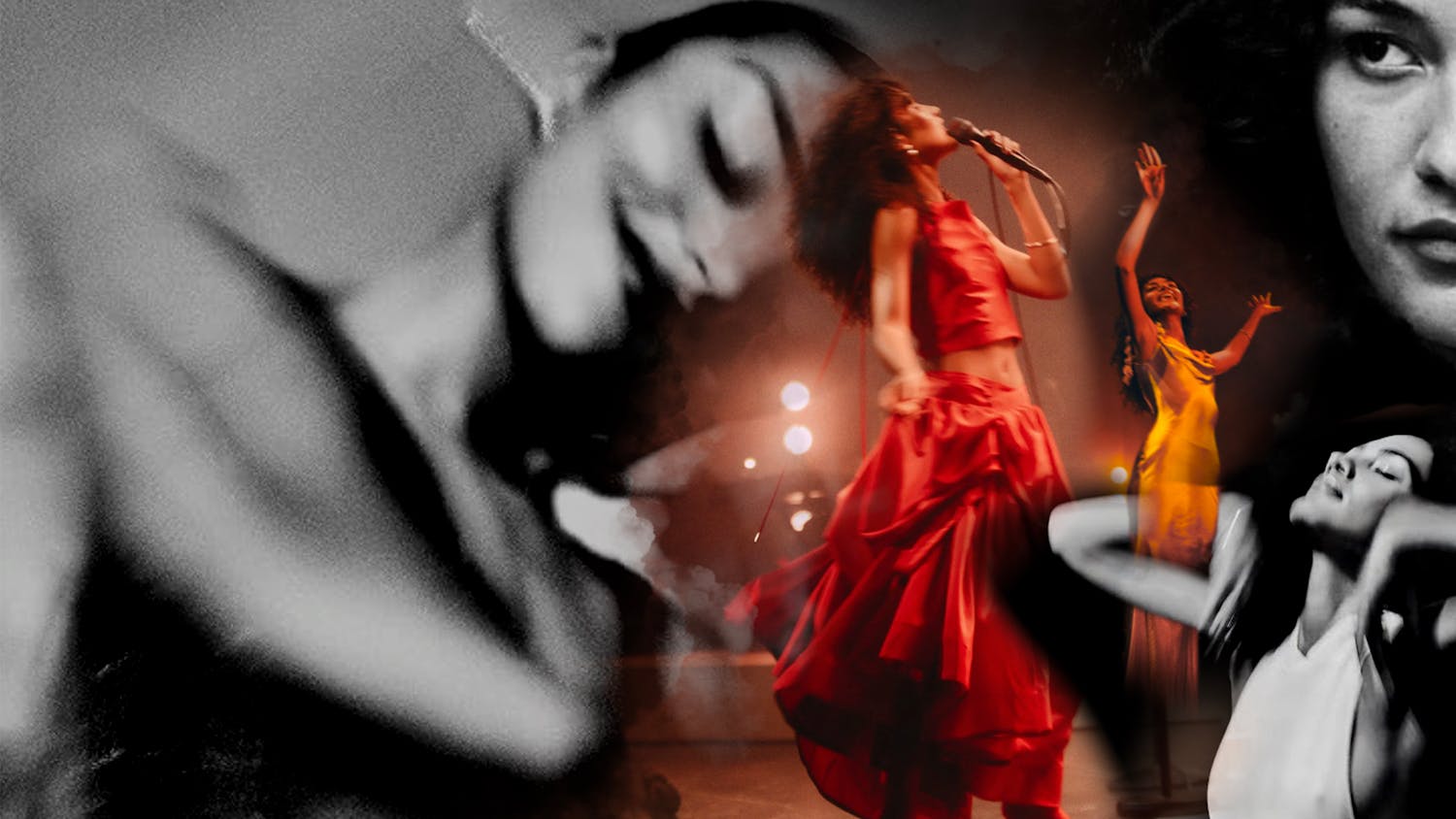[media-credit id=6747 align="alignleft" width="302"][/media-credit]
STREET: Tell us how you got started. kechPhrase: When I was at Rice, which was my school prior to Penn, I lived in Houston. There’s a guy, he lives in Houston—I think he lives in California now—he goes by Fat Tony. He’s on A$AP Rocky’s last album. There’s a track called “Get Lit” that he’s rapping on. Me and him met when they were playing some of my stuff on the Rice radio station. He went to SXSW [South by Southwest Festival] and was like, “Yo, you should come with me. I’m performing at these venues.” He was talking about all these rappers, a lot of big names. And at the time, that was when Das Racist was kind of coming out. They came out in 2008, but they weren’t really famous until like 2010 and back then was when they were still dropping mixtapes. And they were also performing at that venue.
So we just went to Austin and backstage we were playing my music and Kool A.D. is listening, vibing, and then Tony was like, “Yeah it was this guy, his stuff. He goes to Rice. He’s a freshman.” And he [Kool A.D.] was listening and then Heems [also of Das Racist] came in and Heems was like, “Oh yeah, I really like this stuff.” So he said, “Alright. Here’s our manager’s contact info and we’ll see what we can make happen, whether it's helping produce a track or we can make something.”
Now fast forward to my sophomore year, April–ish, things actually went through. Kool A.D. recorded over like three of my beats. We did a song together called “Anything” which is on my upcoming album, and he has a song on his last album called “Arrested Development.” And there’s a track we did in November, just me and him. I just made the beat and he rapped on it. It’s called “Brobama.”
STREET: And that one’s gotten pretty big. kP: Yeah, Pitchfork, Vice, all these other blogs just picked it up, which is cool. It’s just one of those really chill, alternative rap songs. It’s not really pressing political issues at all. It’s just fun. He does a little bit of a Barack Obama impression in there.
STREET: Any future projects you want to talk about? kP: Coming up at Wesleyan University, I’m doing a show with Flatbush Zombies. They have a song with A$AP Rocky called “Bath Salt.” And they have a pretty large following so I’m excited about that. There’s a show down in Houston at Rice with some big headliners. I’m doing that March 9. They’re trying to figure out their headliner. Last year they had Slim Thug, before that Michael Cera’s band, the year before that Japandroids. Because of my track schedule, my music stuff kind of has to work with track. It usually does. It’s just that’s another thing I’m really dedicated to on the side.
STREET: How do you balance it all? What’s your major? kP: I’m Political Science, minor in Sociology. I mean, music can definitely work out if I link up with the right people. But I think for me nothing says you can’t do things on the side. Working this summer taught me that. I interned at Google, and I’d get home at six p.m. from Mountain View. For me what I learned what worked was I’d be back at six—some people like to play video games, some people like bars—but I can come back and just do music, finish a song, finish a beat.
STREET: I was hoping you could comment on what’s on everybody’s mind—the [das Racist] split. kP: Yeah, so they split up, but for the most part they’re still making music individually. Heems just put out a mixtape in November. And Kool was working on a new album called 19. He’s putting out in March or something. So they’re doing their own thing. It’s a question of what happens next. We could see some interesting things.
STREET: Do you think this will be better for them creatively? kP: I mean, I know Vic [Kool A.D.] well, fairly well. He’s my manager. Just seeing them work, being solo is not such a hassle. Because even me, on my album right now, I have a lot of features, like people who are going to be on my tracks and just doing all the A&R stuff, like getting people to—you know we gotta have this by this deadline—that’s just a hassle. So, you know, they’re two different people and they’re two different rappers too. So I think it just got—it got difficult—you know, making songs together. Maybe Kool would go in and do it like this and Heems wouldn’t like it and vice versa. I think it’s better that they’re doing things solo, because I think it’d be more productive.
STREET: I want to get back to your work, your own music. kP: I mean, I started in eighth grade. I was just rapping lots. I listened to Nas a lot. The first album I got was a Nas album called "I Am" that was released in 1999. You know, I’m Nigerian, and I don’t know if you know about Nigerian parents but they’re really strict and music was kind of just like my secret hobby. My friends and other people knew about it, but my parents weren’t that into it. I just started in my basement, bought some stuff, like a microphone—nothing great, real shitty—just enough to record and put together some tracks.
STREET: So you started out just rapping? kP: Yeah I started out rapping over Jay Z’s “Anything.” That was my first song that got a lot of hits and people were like, “You should do this.” What I would do is go on Soundclick and message a lot of producers like, “I don’t have beats,” and if they were liking my stuff, they would let me use it. That’s what I did up to sophomore year when I took a break from rapping to focus on making really great beats. Simultaneously I started learning how to engineer audio. I mean that’s like 50 percent of it. My father’s a professor at Illinois State University, and he put me in touch with some music professors, I learned some engineering stuff, and that got me kind of started.
STREET: Would you say you’re more of a producer now? kP: I’d say it’s even.
STREET: What do you like to do more? kP: That’s a good question. I think I like to produce more. I think where rap is now, where hip hop is, like, it’s a big question mark. It’s not as enjoyable as when I was six listening to Nas in his prime, Jay-Z.
STREET: What do you think of Kendrick Lamar? kP: Kendrick Lamar is wonderful. I think he’s the greatest thing to happen to hip hop in decades. I mean his collective, they’re all considered mainstream rappers now. But that’s not mainstream rap music. I mean the blogs that pick me up are big blogs, but they don’t like the mainstream stuff, they like rappers who are doing something different. So I think he’s great. There’s rappers coming out like Danny Brown, A$AP Rocky, Flatbush Zombies—I have a concert with them next month. Even out in the bay, Trackademicks, E-40—I mean, he’s been around—Del tha Funkee Homosapien, Clyde Carson.
STREET: So all hope is not lost. kP: Yeah, for the most part. I think there are rappers out there who will blow up and people won’t be like, “Oh this underground stuff.” It’s not just a niche market, and I think labels are realizing this. They have a quota for sales, so they’ll pick up artists with play. But I think Kendrick Lamar has proven that this type of conscious music can really sell if it’s marketed properly. But then there are some artists like 2 Chainz and Trinidad James who are getting really good deals but the quality... I mean, as a rapper, I think 2 Chainz is pretty simple.
STREET: “She got a booty, so I call her big booty.” kP: Yeah, anything someone with any rap skill can do.







